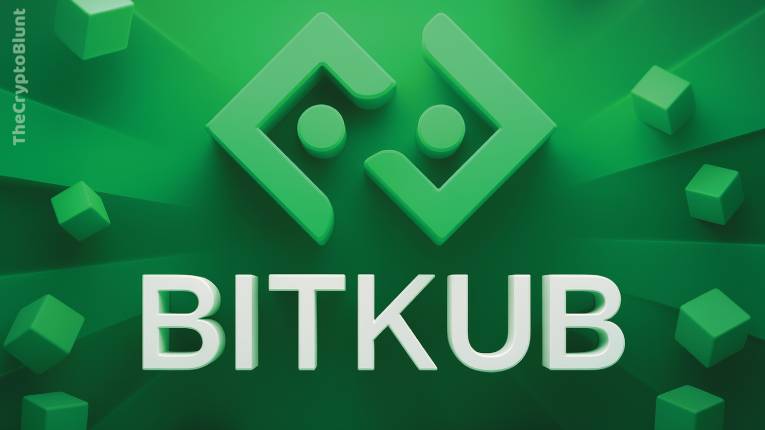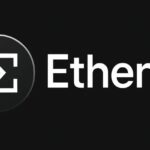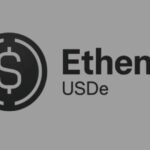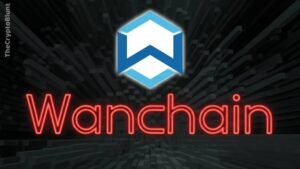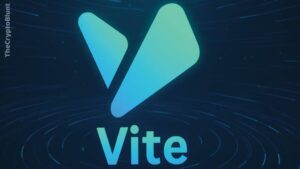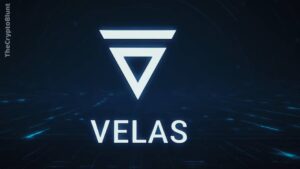When I first encountered the vast and global world of cryptocurrencies, I quickly realized it wasn’t just about decentralized digital money; it was about entire ecosystems tailored to specific regions, cultures, and regulatory landscapes. While major global players dominate headlines, local innovators are often the true drivers of adoption on the ground. That’s when I learned about Bitkub – a name synonymous with digital assets in Thailand, building a comprehensive ecosystem that bridges the gap between traditional finance and the exciting world of blockchain.
For beginners, especially those in Southeast Asia or those looking at localized crypto solutions, the concept of a “national champion” in the crypto space might be intriguing. You might wonder, “What makes Bitkub special?” or “How does it operate within a country’s regulations?” This comprehensive guide is designed to answer those questions and more. We’ll demystify the core concepts of cryptocurrency, blockchain, and decentralization, explain Bitkub’s unique position and ecosystem, and directly tackle common misconceptions about crypto, empowering you with accurate and trustworthy knowledge.
Let’s embark on this journey to understand Bitkub – its origins, its role as a regulated exchange, its innovative blockchain, and its ambitious vision for driving digital asset adoption and Web3 innovation within Thailand and beyond.
Your Crypto Compass: Navigating the Core Concepts (Foundations for Understanding Bitkub)
Before we dive into the specifics of Bitkub, let’s establish a clear understanding of the fundamental concepts that underpin all blockchain technology. These are the building blocks you’ll encounter repeatedly in your crypto journey.
- Cryptocurrency: At its most basic, cryptocurrency is digital money secured by advanced cryptographic techniques. Unlike money in your traditional bank account, which is managed by a central bank or government, cryptocurrencies often operate on a decentralized network. This means no single entity holds all the power; instead, a vast network of computers works together to verify and record transactions, promoting transparency and security without intermediaries. Bitkub Coin (KUB) is the native cryptocurrency of the Bitkub Chain.
- Blockchain: Imagine a digital ledger that’s not stored in one central location but is distributed across thousands of computers globally, constantly growing. Every transaction or piece of data is bundled into a “block,” and once complete, it’s cryptographically linked (or “chained”) to the previous block, forming an unbroken, chronological record. This ingenious structure ensures transparency, security, and immutability – once data is recorded on the blockchain, it’s nearly impossible to alter or remove, making it highly resistant to fraud. The Bitkub ecosystem includes the Bitkub Chain, its own proprietary blockchain.
- Decentralization: This is the foundational philosophy of blockchain technology. It means that control and power are spread out among many participants in a network, rather than being concentrated in the hands of a single, central authority. This distribution makes the network more resilient to censorship, manipulation, and single points of failure. While Bitkub operates a centralized exchange, its Bitkub Chain aims for a level of decentralization through its validator network.
- Consensus Mechanisms (Simplified): How do all these distributed computers agree on the correct order of transactions and validate new blocks? They use a “consensus mechanism.”
- Proof-of-Stake (PoS) / Proof-of-Authority (PoA) Variants: Unlike Bitcoin’s energy-intensive Proof-of-Work (PoW), many newer blockchains, including the Bitkub Chain, use more energy-efficient mechanisms. The Bitkub Chain primarily uses a Proof-of-Stake Authority (PoSA) consensus mechanism. In PoSA, a limited number of pre-selected, trusted validators are responsible for creating new blocks. These validators are chosen based on their stake (amount of KUB held) and their reputation/identity. This allows for high transaction speeds and efficiency, making it suitable for applications that require fast and affordable transactions.
- Validators: In Proof-of-Stake or Proof-of-Authority systems, “validators” are entities that propose and verify new blocks of transactions on the blockchain. They typically “stake” (lock up) a certain amount of the network’s native cryptocurrency as collateral, giving them an incentive to act honestly. On the Bitkub Chain, validators (often reputable organizations or entities) play a crucial role in maintaining its speed and security.
- Smart Contracts: Think of these as self-executing digital agreements stored directly on a blockchain. Unlike traditional contracts, which require intermediaries (like lawyers or banks) to enforce them, smart contracts automatically execute their terms when predefined conditions are met. They are crucial for building complex decentralized applications (dApps) like lending platforms, decentralized exchanges, and NFTs. The Bitkub Chain supports smart contracts.
- EVM (Ethereum Virtual Machine) Compatibility: The EVM is the runtime environment that executes smart contracts on the Ethereum blockchain. A blockchain that is “EVM-compatible” means that smart contracts and decentralized applications built for Ethereum can easily run on it with minimal or no modifications. This is a huge advantage for developers, allowing them to leverage existing tools and a vast ecosystem of applications. The Bitkub Chain boasts EVM compatibility.
- Gas Fees: When you perform an action on a blockchain, like sending tokens, interacting with a smart contract, or making a trade on a decentralized exchange (DEX), you pay a small transaction fee known as “gas.” This fee compensates the network’s validators for processing your transaction and prevents spam. On the Bitkub Chain, gas fees are paid in Bitkub Coin (KUB).
What is Bitkub? Thailand’s Digital Asset Pioneer
Bitkub is more than just a cryptocurrency; it’s a comprehensive digital asset group based in Thailand, playing a pivotal role in the country’s blockchain and crypto adoption. It operates both a leading regulated cryptocurrency exchange and its own blockchain network.
The Genesis of Bitkub: A Local Solution for a Global Phenomenon
Bitkub was founded in 2018 with a clear vision: to make digital assets accessible and compliant for the Thai market. At a time when global exchanges were navigating complex and often ambiguous regulations, Bitkub focused on establishing itself as a trusted, regulated entity within Thailand.
The group’s structure includes:
- Bitkub Online Co., Ltd.: This is the flagship regulated cryptocurrency exchange in Thailand, licensed by the Thai Securities and Exchange Commission (SEC). It provides a platform for Thai users to buy, sell, and trade various cryptocurrencies using Thai Baht (THB) and other digital assets. This regulatory compliance has been a cornerstone of its success and trustworthiness in the local market.
- Bitkub Blockchain Technology Co., Ltd.: This entity developed the Bitkub Chain (KAP-20), a public blockchain network designed to power decentralized applications (dApps), NFTs, and other Web3 innovations within Thailand and for global expansion.
This dual approach – a regulated gateway and a thriving blockchain – positions Bitkub as a unique and influential player in the Southeast Asian crypto landscape.
Bitkub’s Core Philosophy: Localized Trust, Scalability, and Innovation
Bitkub’s strategy is built on a few key pillars:
- Regulatory Compliance & Trust: Operating within established regulatory frameworks is paramount for Bitkub. This focus on compliance has helped build trust with users and traditional financial institutions in Thailand.
- Localized Experience: Tailoring its services, language, and support to the Thai market has been crucial for its widespread adoption.
- Scalability for Mass Adoption: The Bitkub Chain is designed to be highly scalable, offering fast transaction speeds and low fees to support a large number of users and dApps without network congestion.
- Ecosystem Development: Bitkub is committed to fostering a vibrant ecosystem of developers, projects, and users on the Bitkub Chain, aiming to make it the leading blockchain for Web3 innovation in Thailand.
- Bridging Traditional Finance and Crypto: Bitkub seeks to act as a bridge, making it easier for traditional businesses, institutions, and the general public to engage with digital assets and blockchain technology.
Key Technical Aspects of Bitkub Chain (KAP-20)
- Consensus Mechanism (Proof-of-Stake Authority – PoSA): The Bitkub Chain utilizes a PoSA consensus model. This means that a relatively small, fixed number of reputable validators are responsible for creating new blocks. These validators are typically known entities (e.g., major Thai corporations, government-related entities, or key ecosystem players) who stake KUB tokens. This design allows for high transaction speeds, low fees, and a degree of decentralization while maintaining accountability.
- High Transaction Speed (TPS) & Low Fees: The PoSA consensus enables the Bitkub Chain to achieve high transaction throughput and significantly lower transaction fees compared to older, more congested blockchains. Gas fees are paid in KUB.
- EVM Compatibility: The Bitkub Chain is fully compatible with the Ethereum Virtual Machine (EVM). This is a massive advantage for developers, as it allows them to easily migrate existing dApps from Ethereum or build new ones using familiar tools and programming languages (like Solidity).
- KAP-20 Token Standard: Similar to Ethereum’s ERC-20, the Bitkub Chain has its own KAP-20 token standard for fungible tokens, and KAP-721/KAP-1155 for Non-Fungible Tokens (NFTs).
- Native Bridge: The Bitkub Chain includes a built-in bridge that facilitates the seamless transfer of assets between itself and other EVM-compatible blockchains, enhancing interoperability.
- Smart Contract Capabilities: The chain fully supports smart contracts, enabling the creation of complex decentralized applications across various sectors like DeFi, gaming, and enterprise solutions.
Consider adding an infographic here: “Bitkub: The Thai Digital Asset Powerhouse – Exchange + Blockchain + KUB Coin.”
The Bitkub Ecosystem: A Growing Web3 Frontier in Thailand
The Bitkub ecosystem is a holistic environment encompassing its regulated exchange, its native blockchain, and a growing array of decentralized applications and services built on the Bitkub Chain. It’s designed to cater to both new and experienced crypto users within Thailand and potentially expand regionally.
Core Components of the Bitkub Ecosystem:
- Bitkub Online Exchange:
- Regulated Trading Platform: The central hub for buying, selling, and trading cryptocurrencies (including KUB, BTC, ETH, and hundreds of others) using Thai Baht.
- Fiat On/Off-Ramps: Provides easy ways for users to deposit and withdraw Thai Baht to and from their bank accounts, bridging traditional finance with crypto.
- User-Friendly Interface: Designed to be accessible for beginners, with customer support tailored to the Thai language and culture.
- Security: Implements robust security measures to protect user funds and data, complying with regulatory requirements.
- Bitkub Coin (KUB):
- Native Utility Token: KUB is the native cryptocurrency of the Bitkub Chain. It’s used for:
- Gas Fees: Paying for transaction fees on the Bitkub Chain.
- Staking: KUB holders can stake their tokens to secure the network (as validators or delegators) and earn rewards.
- Governance: KUB holders may have voting rights in future decentralized governance models for the Bitkub Chain.
- Exchange Benefits: Holders on the Bitkub Online exchange might receive trading fee discounts, exclusive access, or other perks.
- Native Utility Token: KUB is the native cryptocurrency of the Bitkub Chain. It’s used for:
- Bitkub Chain (KAP-20):
- Public Blockchain: The underlying infrastructure for decentralized applications.
- EVM Compatible: Attracts developers familiar with Ethereum.
- Fast and Low-Cost: Designed for efficient dApp operations and user interactions.
- Decentralized Applications (dApps) on Bitkub Chain: A rapidly expanding list of applications built by various developers and companies, leveraging the Bitkub Chain’s capabilities:
- DeFi Protocols: Decentralized exchanges (DEXs), lending platforms, yield farming protocols that allow users to interact with digital assets without intermediaries.
- NFT Marketplaces: Platforms for creating, buying, and selling Non-Fungible Tokens (NFTs), including digital art, collectibles, and gaming assets unique to the Thai cultural context.
- Blockchain Games (GameFi): Play-to-earn games that integrate KUB or KAP-20 tokens for in-game economies, asset ownership, and rewards.
- Metaverse Projects: Virtual worlds and immersive experiences being built on the Bitkub Chain.
- Enterprise Solutions: Businesses exploring using the Bitkub Chain for supply chain management, identity verification, or other private/public ledger applications.
- Bitkub NEXT: A digital wallet developed by Bitkub that supports KUB and other KAP-20 tokens, providing a user-friendly interface for interacting with the Bitkub Chain and its dApps.
- Bitkub Ventures: An investment arm focused on funding and nurturing promising blockchain and Web3 projects within the Bitkub ecosystem.
- Community and Developer Support: A growing community of developers, educators, and enthusiasts actively contributing to the Bitkub ecosystem’s growth, with strong local support and events in Thailand.
The “Why”: Real-World Applications and Benefits of Bitkub
Bitkub’s unique position as a regulated entity with its own blockchain aims to solve critical challenges and unlock opportunities, particularly for mass adoption in a specific national context like Thailand.
For Everyday Users & Crypto Enthusiasts (Especially in Thailand): Trust, Accessibility, and Innovation
- Regulated and Trusted Access: For users in Thailand, Bitkub Online provides a secure and legally compliant gateway to the world of cryptocurrencies. This builds confidence and trust, which is crucial for mass adoption.
- Easy Fiat On/Off-Ramps: Seamless integration with Thai Baht bank accounts makes it incredibly easy for beginners to enter and exit the crypto market, removing a major hurdle.
- Affordable and Fast Transactions (on Bitkub Chain): Once on the Bitkub Chain, users can experience extremely low gas fees and fast transaction speeds, making interactions with DeFi, NFTs, and GameFi accessible and enjoyable without prohibitive costs. This is particularly beneficial for small transactions or frequent interactions.
- Localized Content and Support: Access to customer support, educational materials, and community initiatives in the local language fosters a more comfortable and engaging experience for Thai users.
- Participation in a Local Ecosystem: Users can engage with dApps, NFTs, and games that are culturally relevant or developed by Thai creators, fostering a sense of community and national pride in Web3 innovation.
- Staking Rewards: KUB holders can participate in staking to earn passive income, aligning their interests with the growth and security of the Bitkub Chain.
For Developers and Businesses (Especially in Thailand and APAC): Scalability, Compliance, and Growth
- Compliance-Focused Infrastructure: For businesses looking to integrate blockchain technology, building on a regulated and compliant platform like Bitkub Chain reduces legal and operational risks.
- EVM Compatibility – Developer Familiarity: Developers can leverage their existing knowledge of Ethereum’s ecosystem (Solidity, Web3.js) to build dApps on the Bitkub Chain, significantly reducing development time and costs.
- High Performance for Enterprise Solutions: The Bitkub Chain’s speed and low fees make it suitable for enterprise-grade applications requiring high transaction throughput, such as supply chain management, loyalty programs, or digital identity solutions.
- Access to a Local Market: Businesses can tap into Bitkub’s established user base and brand recognition in Thailand, gaining a significant advantage in user acquisition and adoption.
- Incubation and Funding: Bitkub Ventures provides financial and strategic support for promising projects, accelerating their development and market entry.
- New Revenue Streams: The ability to issue NFTs, create tokens, and build DeFi protocols on a high-performance chain opens up new revenue streams and business models for various industries, including entertainment, gaming, and finance.
For the Broader Web3 Ecosystem: Showcasing Regional Adoption and Interoperability
- Model for Regulated Growth: Bitkub serves as an important case study for how a crypto ecosystem can thrive within a regulated environment, offering insights for other regions grappling with similar challenges.
- Regional Innovation Hub: By fostering a vibrant dApp ecosystem, Bitkub contributes to Thailand’s position as a hub for Web3 innovation in Southeast Asia.
- Interoperability: Its EVM compatibility and bridging capabilities promote seamless asset transfer and interaction with other major blockchain networks, contributing to a more interconnected Web3.
Dispelling the Myths: Addressing Common Crypto Misconceptions (and Bitkub’s Context)
The rapid growth and innovative nature of the cryptocurrency world often lead to misunderstandings and persistent myths. Let’s tackle some of the most common ones, highlighting how Bitkub’s design and purpose provide clear counterarguments.
- “Cryptocurrency is only for criminals and illicit activities.”
- Reality: This is a pervasive but largely inaccurate myth. For regulated entities like Bitkub Online, strict Know Your Customer (KYC) and Anti-Money Laundering (AML) procedures are in place, making it impossible for anonymous illicit activities to thrive. Furthermore, for public blockchains like the Bitkub Chain, every transaction is recorded on a publicly accessible and immutable ledger, making illicit activities more traceable than traditional cash.
- Context for Bitkub: Bitkub’s foundational strategy is built on regulatory compliance. As a licensed digital asset exchange in Thailand, it operates under the strict oversight of the Thai SEC. This means all users must undergo KYC verification, and transactions are monitored for suspicious activity. The Bitkub Chain itself, while a public blockchain, records all transactions transparently. This rigorous adherence to regulations directly counters the “criminal” narrative, positioning Bitkub as a gateway to legitimate and transparent digital asset engagement.
- Trustworthiness Principle: “Just as traditional currencies and banking systems can be misused, so too can digital assets. However, Bitkub’s stringent regulatory compliance, including mandatory KYC and AML checks for its exchange, and the inherent transparency of its Bitkub Chain, make it an unsuitable environment for illicit activities to flourish. Bitkub’s core purpose is to provide a legitimate, secure, and regulated pathway for individuals and businesses to engage with digital assets, demonstrating how cryptocurrencies are part of a legitimate and evolving digital economy. We are committed to providing transparent education to show how these technologies can benefit everyone.”
- “Crypto is a scam/Ponzi scheme.”
- Reality: Sadly, the crypto space has indeed seen its share of fraudulent projects, “rug pulls,” and outright scams. However, it is crucial to distinguish between illegitimate schemes and genuine blockchain technology that offers real innovation and utility. A legitimate project solves a real problem, has clear utility for its native tokens, and a sustainable economic model driven by usage, not just by attracting new investors.
- Context for Bitkub: Bitkub is a well-established and regulated company in Thailand, operating under governmental oversight. Its core products (the exchange and the blockchain) have clear utility: the exchange facilitates compliant trading, and the Bitkub Chain provides infrastructure for dApps with KUB as its gas token. Bitkub Coin (KUB) derives its value from its utility within this growing ecosystem and the demand generated by transactions and dApp usage on the Bitkub Chain. It is a publicly listed company, and its operations are transparent, distinguishing it from a fraudulent scheme that lacks genuine utility or transparency.
- Authoritativeness Tip: “When evaluating any crypto project, look beyond promises of guaranteed, unrealistic returns. Does it have a real product or service that solves a problem? Is there a credible, often open-source, development team? Is it regulated by a recognized authority? For Bitkub, its status as a licensed digital asset operator in Thailand, its operational blockchain, and the clear utility of the KUB token within its expanding ecosystem clearly distinguish it from a fraudulent scheme. Always refer to official documentation, regulatory licenses, technical audits, and credible independent reviews to understand fundamental mechanics and security guarantees. Regulatory compliance, as demonstrated by Bitkub, is a strong indicator of legitimacy.”
- “Crypto is bad for the environment.”
- Reality: This misconception primarily stems from the energy consumption of older “Proof-of-Work” (PoW) blockchains like Bitcoin. However, the blockchain industry has rapidly evolved towards significantly more energy-efficient solutions.
- Context for Bitkub: The Bitkub Chain utilizes a Proof-of-Stake Authority (PoSA) consensus mechanism, which is significantly more energy-efficient than PoW. Unlike PoW, which requires vast computational power, PoSA relies on a limited set of validators who simply confirm transactions by staking their KUB tokens. This process consumes dramatically less energy, making interactions on the Bitkub Chain, and thus the use of KUB, a much more environmentally conscious choice within the crypto space.
- Experience Insight: “When I first encountered crypto, the headlines about energy consumption were a major concern, and rightly so for early blockchain technologies. However, it’s crucial to understand that not all blockchains are created equal in terms of energy use. Bitkub Chain, by leveraging an energy-efficient Proof-of-Stake Authority consensus, operates with a drastically reduced environmental impact. The blanket statement ‘crypto is bad for the environment’ simply isn’t accurate across the board, especially for modern, high-performance PoS-based networks like Bitkub Chain.”
- “Crypto will replace all traditional money.”
- Reality: While cryptocurrencies like KUB and the Bitkub Chain offer significant innovations and efficiencies, the idea that they will completely replace all traditional fiat money in the near future is highly unlikely and not the primary goal of most major blockchain projects. Instead, they are more likely to coexist and integrate with traditional financial systems, offering alternative or complementary solutions.
- Context for Bitkub: Bitkub’s entire business model is built on integrating with, rather than replacing, traditional finance. Its exchange provides direct on-ramps and off-ramps with the Thai Baht banking system. The Bitkub Chain aims to enhance existing digital commerce, gaming, and data management systems, not obliterate them. Bitkub envisions a future where digital assets and blockchain technology augment and improve the existing financial infrastructure, offering new tools for payment, investment, and digital ownership, often alongside traditional money. It’s about evolution, not revolution in the sense of complete replacement.
Getting Started: A Beginner’s Perspective on Acquiring & Using Bitkub (KUB)
If Bitkub’s vision for a regulated, localized, and innovative blockchain ecosystem appeals to you, especially if you’re in or connected to Thailand, you’re probably eager to learn how to acquire KUB and interact with its ecosystem. This information is purely for educational purposes and should not be considered financial, investment, or legal advice. Always remember that security and due diligence are paramount in the crypto world.
- Understanding What You’ll Need:
- Bitkub Online Exchange Account (Recommended for Thai users): The primary and most direct way to acquire KUB and other crypto using Thai Baht.
- A Compatible Crypto Wallet: You’ll need a “self-custodial” wallet where you control your private keys/seed phrase.
- Bitkub NEXT Wallet: The official wallet for the Bitkub Chain, designed for seamless interaction within the ecosystem.
- MetaMask: A very popular browser extension wallet. You will need to add the Bitkub Chain as a custom network to it.
- Trust Wallet: A popular mobile wallet that supports custom EVM networks.
- Hardware Wallets (e.g., Ledger, Trezor): For the highest level of security, these physical devices store your private keys offline. Check for official or community-developed support for the Bitkub Chain.
- Acquiring Bitkub Coin (KUB):
- 1. On the Bitkub Online Exchange (Most Direct for Thai Users):
- Sign Up and Complete KYC: This is a mandatory process for all regulated exchanges in Thailand. You will need to provide national ID (e.g., Thai ID card) and complete verification steps.
- Deposit Thai Baht (THB): Fund your account via bank transfer or other approved methods.
- Buy KUB: Navigate to the trading section and find the KUB/THB trading pair. Enter the amount of KUB you wish to buy and execute your order.
- Withdraw to Your Self-Custodial Wallet (Optional but Recommended): Once you’ve acquired KUB, you can choose to leave it on the exchange (convenient for trading) or withdraw it to your own Bitkub NEXT or EVM-compatible wallet for self-custody and dApp interaction. When withdrawing, ensure you select the Bitkub Chain (KAP-20) network.
- 2. On Other Centralized Exchanges (If available in your region, outside Thailand):
- KUB may be listed on other international exchanges. Follow their KYC procedures, deposit funds (fiat or crypto), and buy KUB in available trading pairs.
- Crucial: When withdrawing KUB from any exchange, always ensure you select the Bitkub Chain (KAP-20) network if you intend to use it within the Bitkub Chain ecosystem.
- 1. On the Bitkub Online Exchange (Most Direct for Thai Users):
- Connecting Your Wallet to the Bitkub Chain (Crucial Step!):
- For your EVM-compatible wallet (e.g., MetaMask, Trust Wallet) to interact with dApps on the Bitkub Chain, you need to add the Bitkub Chain as a custom network. Bitkub NEXT wallet will typically be pre-configured.
- Official Instructions: Always get the most up-to-date network details (RPC URL, Chain ID, Currency Symbol) from the official Bitkub Chain documentation (e.g., https://www.google.com/search?q=docs.bitkubchain.com) or trusted sources.
- Steps (General for MetaMask):
- Open MetaMask.
- Click on the network dropdown (usually “Ethereum Mainnet” or “BNB Smart Chain” by default).
- Select “Add network” or “Custom RPC.”
- Enter the Bitkub Chain network details (verify these from official sources, as they can change):
- Network Name: Bitkub Chain
- New RPC URL: https://rpc.bitkubchain.io (or another official RPC from Bitkub docs)
- Chain ID: 96
- Currency Symbol: KUB
- Block Explorer URL (Optional): https://bkcscan.com
- Save the network.
- Switch to the “Bitkub Chain” network in your wallet when you want to interact with Bitkub Chain dApps.
- Storing Your Tokens on Bitkub Chain:
- Once your KUB and other KAP-20 tokens are on the Bitkub Chain, they will appear in your EVM-compatible wallet when your wallet is specifically connected to the “Bitkub Chain” network.
- Using the Bitkub Ecosystem (dApp Interaction and Beyond):
- 1. Explore dApps: Visit the official Bitkub Chain website (bitkubchain.com) or ecosystem pages to discover decentralized applications built on the Bitkub Chain (e.g., Bitkub NFT, Bitkub NEXT, various DeFi protocols, games).
- 2. Connect Your Wallet: On the dApp’s website, click “Connect Wallet” and select your preferred wallet (e.g., Bitkub NEXT, MetaMask). Ensure your wallet is connected to the “Bitkub Chain” network.
- 3. Perform Actions:
- Swapping Tokens (on a DEX): Use decentralized exchanges built on Bitkub Chain to swap KAP-20 tokens.
- Participate in DeFi: Engage in lending, borrowing, or staking activities on Bitkub Chain-based DeFi protocols.
- Buy/Sell NFTs: Explore NFT marketplaces built on Bitkub Chain, supporting local artists and creators.
- Play Blockchain Games: Enjoy GameFi projects that integrate KUB or KAP-20 tokens for in-game assets and rewards.
- 4. Pay for Gas Fees with KUB: All transactions you perform on the Bitkub Chain network will incur gas fees. These fees are exclusively paid in KUB tokens. Always ensure you have a small amount of KUB in your wallet on the Bitkub Chain to cover these operational costs.
- 5. Explore Exchange Features: On Bitkub Online, you can participate in trading, staking programs (if offered), and other features provided by the regulated exchange.
- 6. Engage with the Community: Join official Bitkub social media channels, forums, and local meetups (especially if you’re in Thailand) to stay updated and connect with other users and developers.
The Road Ahead: The Future of Bitkub and its Ecosystem
Bitkub is committed to its vision of being a leading force in Thailand’s digital transformation, leveraging blockchain technology for widespread adoption. Its future promises continuous innovation and expansion:
- Further Ecosystem Growth: Expect a sustained increase in the number and diversity of dApps, projects, and partnerships on the Bitkub Chain across various sectors.
- Enhanced Interoperability: Continued development of bridges and integrations with other major blockchain networks will make the Bitkub Chain a more interconnected part of the global Web3 landscape.
- Enterprise Adoption: Bitkub’s focus on compliance and scalability makes it attractive for traditional businesses looking to integrate blockchain solutions into their operations.
- Regulatory Evolution: As a regulated entity, Bitkub will continue to work closely with Thai authorities to shape a clear and supportive regulatory environment for digital assets.
- Education and Awareness: Ongoing efforts to educate the public about blockchain and digital assets will be crucial for mass adoption in Thailand.
- Regional Expansion: While focused on Thailand, Bitkub may explore opportunities for expansion into other Southeast Asian markets.
In conclusion, Bitkub (with its KUB token and Bitkub Chain) stands as a powerful example of a localized and regulated cryptocurrency ecosystem. By seamlessly integrating a trusted exchange with its own high-performance blockchain, Bitkub is paving the way for mainstream digital asset adoption and Web3 innovation in Thailand. Understanding its commitment to compliance, its technical capabilities, and its vibrant ecosystem empowers you to appreciate its unique position in the global crypto narrative. Remember to always prioritize security and continue your learning journey to explore the possibilities that Bitkub offers for a digitally empowered future.

